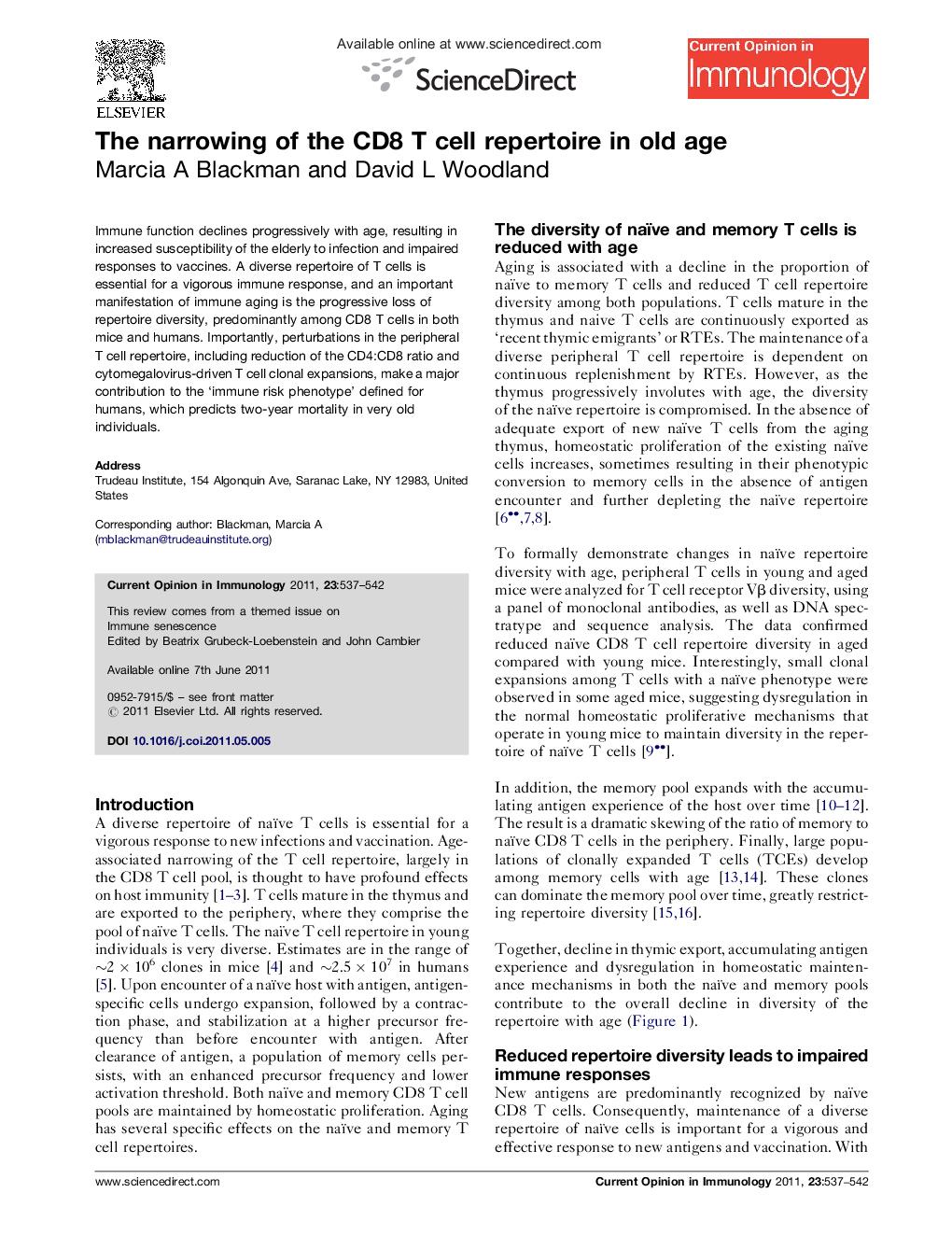| Article ID | Journal | Published Year | Pages | File Type |
|---|---|---|---|---|
| 3346126 | Current Opinion in Immunology | 2011 | 6 Pages |
Immune function declines progressively with age, resulting in increased susceptibility of the elderly to infection and impaired responses to vaccines. A diverse repertoire of T cells is essential for a vigorous immune response, and an important manifestation of immune aging is the progressive loss of repertoire diversity, predominantly among CD8 T cells in both mice and humans. Importantly, perturbations in the peripheral T cell repertoire, including reduction of the CD4:CD8 ratio and cytomegalovirus-driven T cell clonal expansions, make a major contribution to the ‘immune risk phenotype’ defined for humans, which predicts two-year mortality in very old individuals.
► Repertoire diversity declines with age. ► Clonally expanded T cells develop in the memory pool with age. ► Reduced repertoire diversity leads to impaired immunity. ► Fortuitously cross-reactive memory cells may recognize new antigens. ► Persistent CMV infection strongly correlates with the immune risk phenotype.
